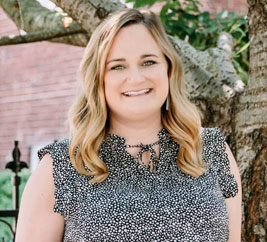Special Needs Trusts
A special needs trust is created to supplement the needs of a person with a disability. This type of trust allows that person to be eligible to receive governmental benefits such as SSI (Supplemental Security Income) or TennCare/Medicaid. Even if your loved one is not currently receiving governmental assistance, placing an inheritance in a special needs trust is critical to ensuring that they qualify for those benefits should they apply. One of the most critical aspects of a special needs trust is that it must state that the assets of the trust can only be used to supplement the beneficiary’s needs. The assets cannot be used for the beneficiary’s day-to-day living expenses.
Example of How a Special Needs Trust Works
Mitch and Abby are married and have one child together, Lamar, who has a mental disability. Lamar is 18 years old and due to his disability, he will never be able to care for himself. He will always need a caregiver. Lamar has qualified for SSI and Medicaid and his parents do not want Lamar to lose those benefits if they pass away and he receives a large inheritance. They want Lamar’s inheritance to be used to supplement those governmental benefits.
They then meet with an attorney to discuss their needs. That attorney designs a special needs trust that would allow the trustee to use the money for Lamar’s supplemental needs at the discretion of the trustee. What this means is that Lamar would have no control over how the assets are used. Further, the trust states specifically that the assets cannot be used in such a manner that would disqualify Lamar from receiving SSI and Medicaid. Mitch and Abby decide to name Mitch’s brother Ray as trustee of this trust. If Ray cannot serve, they have named a corporate successor trustee as the backup. At Lamar’s death, they decide the remaining assets will be conveyed to Vanderbilt Children’s Hospital.
Under this setup, the child will qualify for vital governmental programs and be able to have extra money if needed for in-home healthcare, medical devices, furniture, vacations, or other such supplemental needs.
Children With Behavioral Problems
In today’s society, it is not uncommon to see parents want to limit access to certain funds that they may leave their kids. Perhaps a son has a drug or alcohol problem or a daughter has a large amount of debt and has spending issues. Whatever the case may be, many parents do not feel comfortable giving children with these types of issues substantial amounts of money without some limits on how it may be used. Under those circumstances, a trust would be a viable solution to those issues. A parent could name a responsible party as trustee and direct the trustee that the money could only be used for the benefit of the child. The parent could limit the use of the money to education or healthcare, or even provide for housing. By limiting the use of the assets, it allows the trustee to preserve the balance of the trust but also provides a benefit to the child.
Appointing a Trustee
When considering who should be appointed trustee, it is important to consider someone fairly young. Chances are that if the beneficiary of the trust is a child then the administration of the trust could last for quite some time. You want someone in place that will be around for a while. Additionally, consider naming a corporate trustee who has experience in handling special needs trusts. Corporate trustees are important to bear in mind as they will likely be around for much longer than any individual person serving as trustee and can continue to look after the beneficiary in perpetuity.
Also, consider the physical and mental burden on the trustee to care for a disabled person. Before deciding on a trustee, be sure to speak with the proposed trustee to ensure they are willing to serve. Explain to them in detail the significant responsibility they are to have if they choose to serve as trustee.
Consider Making Distributions Unequal
If your estate plan has multiple beneficiaries and one of them requires a special needs trust, think about making the distributions unequal. Here’s why: A disabled person most likely will need greater resources than a healthy individual over the long run. As such, to guarantee that a beneficiary with a disability has enough assets over time, consider providing more to this beneficiary than the others. After all, you can always name the other healthy beneficiaries as the ultimate recipients of the special needs trust in the event that the disabled beneficiary passes away.
Use of the Assets of Special Needs Trust
So, if the assets cannot be used for day-to-day living expenses, what exactly can the funds be used for? This can be a tricky question, and you want to be sure that you consult with a special needs trust attorney if there is a question about how the trust assets should be spent. Below is a list of assets that can be used to supplement the needs of a beneficiary without costing them their government benefits:
- The home of the disabled person — assuming that the individual lives in the home or intends to return home if in a nursing home
- A vehicle
- Utilities
- Furniture and home furnishings
- Personal items such as jewelry, heirlooms, or clothing
- Education expenses
- Travel expenses
- Entertainment expenses






 Julia Mynhier
Julia Mynhier 
 Crow Estate Planning
Crow Estate Planning 
 Kyle Shannon
Kyle Shannon 
 John Crow
John Crow